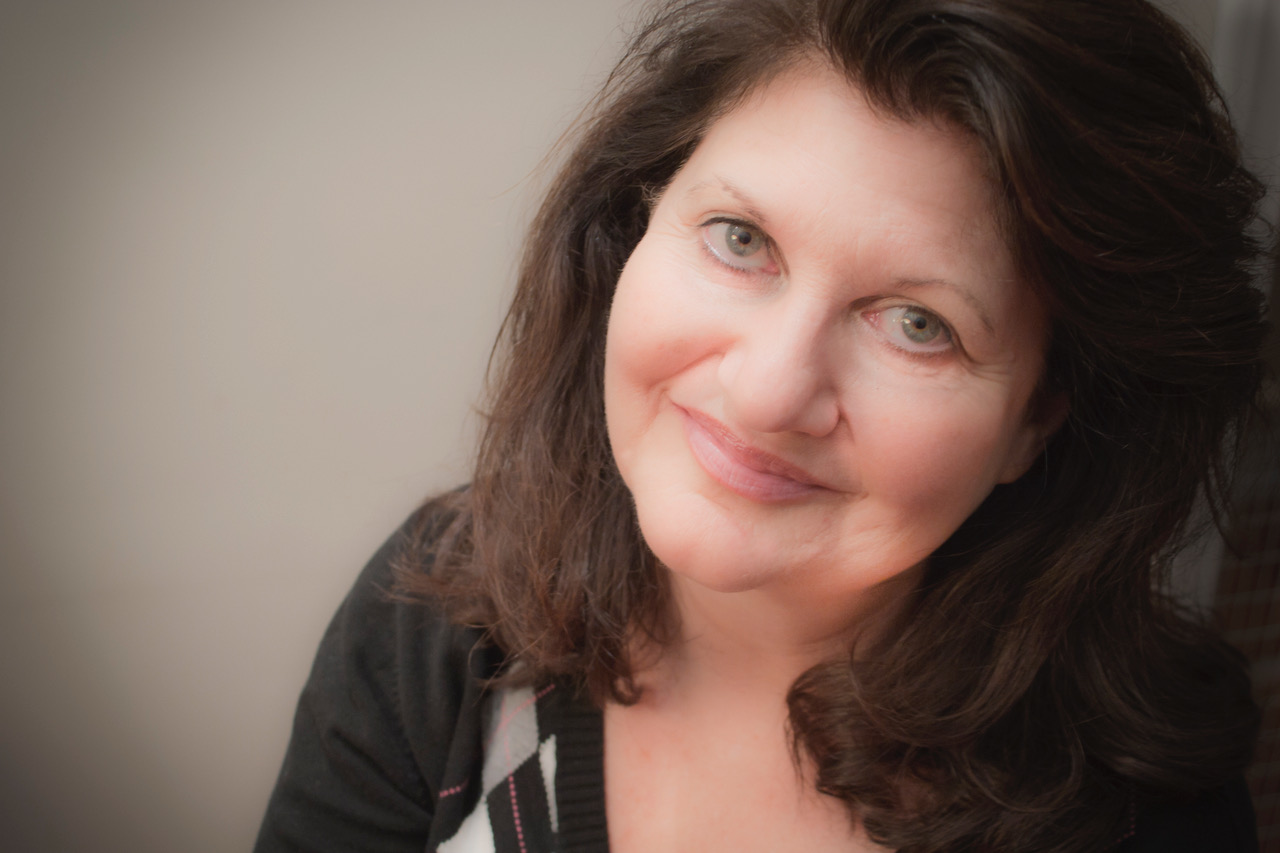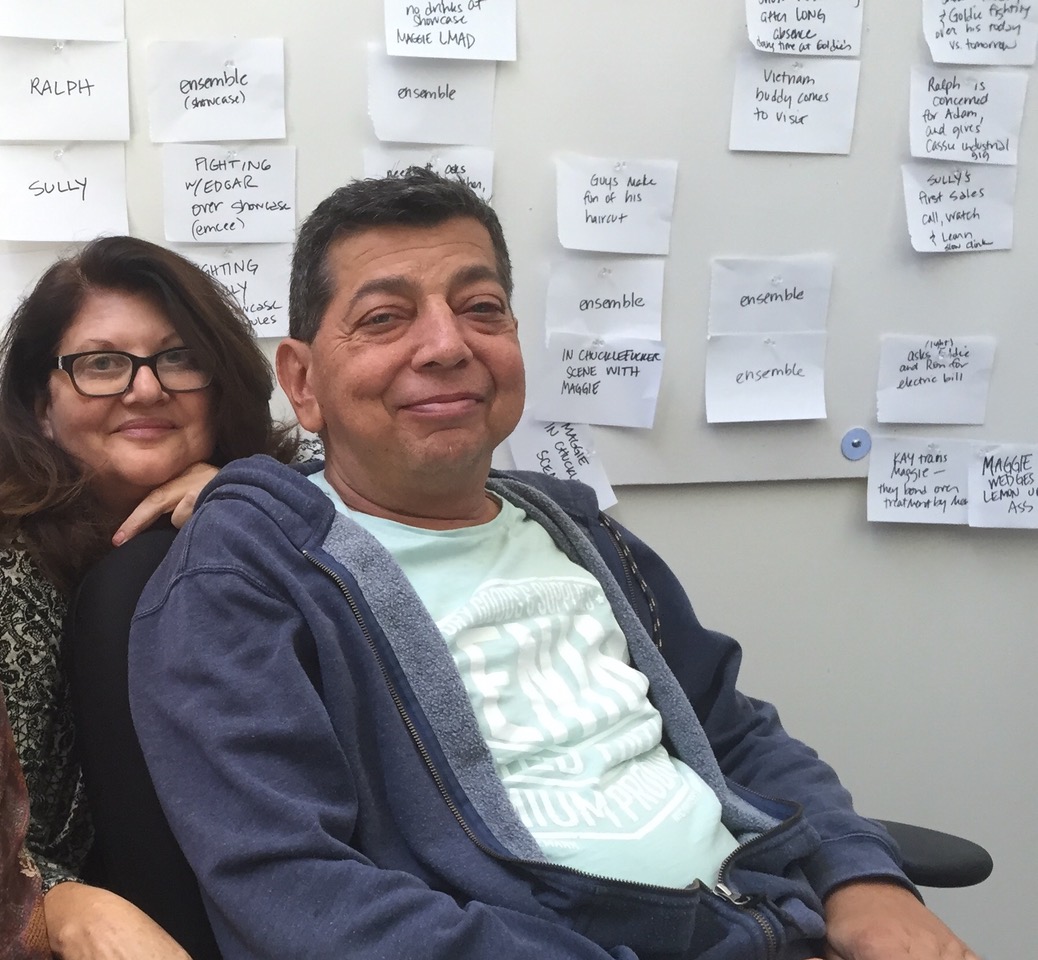
- Industry
Cindy Caponera: Proving Women are Funny Too
“What’s it like to be a guy? To just get to be funny and not have someone yelling something about your tits every time you step on stage?” The lines are spoken by a female comic in Showtime’s I’m Dying Up Here (Jim Carrey is one of the Executive producers) in an episode entitled: Women Are Funny Too, written by Cindy Caponera. Set in LA in the 70s, the show is based on a nonfiction book by the same title and follows a group of stand-up comics. Melissa Leo portrays the club owner where David Letterman, Jay Leno and Richard Pryor cut their teeth and where aspiring comedians step up to the mic in the hopes of getting their chance on The Tonight Show with Johnny Carson. Caponera, who is also a consulting producer, worked at The Second City and Saturday Night Live and knows the comedy scene intimately.
“People say women aren’t funny, but I come from a funny family,” say Caponera. “My father’s hilarious, and my mother has a wicked acerbic wit.” So funny was natural for Cindy and disproved the adage. “In 8th grade I was already performing Woody Allen pieces, but it was only when I learned how to improvise at The Second City, in my hometown of Chicago, that everything really exploded for me. I realized that improv was really writing and creating characters on your feet and that’s a very strong skill set.” Cindy moved to New York to nanny for a friend, but was down to her last $1.50 when a guy she’d gone to acting school with 9 years earlier, got a gig as the producer of SNL. He brought her on as a writer. Given the sheer proximity to the legacy of talent that walked through those halls and that some of her favorite comedians like Gilda Radner, had carved a path for women on that show, Cindy immediately broke into a head to toe rash, so intense it even made her eyes swell, but she was soon writing the opening monologues.
From there she segued to writing half hour comedies. “By this time I’d already been in comedy about 15 years and was older than most of the 11 men and one other woman in the writer’s room.” Her pedigree was impressive so she wasn’t prepared when she was called into the office and told, “Pease, don’t talk. Can you just listen?” How does someone pitch ideas for a character if you can’t talk? “Exactly.” She laughs. “I kept bumping into this thing where I felt, ‘I already know a lot of what we are talking about so why am I being asked not to talk?’ Are you kidding me?” Which might help to explain why only 29% of television writers are women, despite this being the ‘golden age’ of that medium. The number is even more dismal for film.
Caponera credits her humor for helping her handle the hierarchy in the writer’s room. “Initially, I spent too much time trying to fit into some system, instead of saying, ‘Why should I’? What helped was I could come up with jokes in the moment; if you are in a room with a bunch of guys and you can do that, there is definitely good will.”
But being a gender minority adds subtle pressure. Statistics show that women are more likely to be interrupted than men. Cognizant of that, Cindy notes that when pitching, “Women tend to say things really fast, for fear of getting interrupted, “whereas a guy will tell the most boring story for what feels like a lifetime, not a joke in sight and there’s never a moment where he feels like he should not be commanding the room, so you go, ‘Wow, who hugged you? I’ll take some of those hugs.’” Caponera who defied expectations to stay in her blue-collar roots, marry, and have kids doesn’t carry a chip on her shoulder. “In the creative process there will be times when you pitch something and it doesn’t get heard until someone repeats your idea. You try to protect yourself but it’s not easy to do without sounding petty. I’ll say, ‘Thanks for seconding my idea.’

All of the stories and invisible hurdles she’s overcome, made I’m Dying Up Here a perfect vehicle for showcasing the strange situational truths of the different rules for guys and women – everything from the content women can make jokes about, to the risks of being a woman performing to a mostly male audience who have been drinking copiously. “I really identified with Ari’s character, of being around all these men and trying to give yourself permission to go toe to toe in a way that is necessary to be counted, but still trying to be feminine. I wanted to do an episode about being around all these guys and ‘be their equal’ but be funny in a way that works for you.” There are all these situations guys never have to deal with that merely by being a woman forces you to deal with, in addition to all the other things you already have to do. “I do not believe that men are the enemy. I have a lot of really good male writer friends but there is always some freaking guy trying to prevent you from doing what you do because they see you a different way or don’t think that you should be doing it the way you are doing it or they think you should be doing something else, and often it’s very subtle.”
The show also touches upon racism, gender issues and even the pressure of being the guy who has to sacrifice his dreams to support his family, while swirling in a good dose of funny. Does she feel pressure to create characters that will inspire the next generation of women? That may be a little too much pressure to take on, but Cindy notes, “I have asked if a female character can say a certain line and keep her pants on. Most of the guys are pretty smart and decent. You can have the conversation with them. For me, it’s always about character. If you are telling a story and the character needs to do something undignified, how do you communicate the demoralization of someone while still protecting them as a character?
As we wrap, I note that female writers are still paid less than men, and Cindy responds by highlighting what many women in entertainment reference: the discrepancy in opportunity. “There are a lot of guys, pretty much the same – mid 30s to 40s. I’m not going to say white guys,” she demurs refusing to state the obvious. In television they get an overall deal. So they get first crack at all the really good jobs, because the studios are going to burn off their salary by putting them on a particular show. So when you are on the Executive Producer/Co-exec level and trying to get a show, they already have five guys with overall deals at that level attached. A friend of mine had a show. The star was a woman. There were five guys as co-executive producers and no upper level women. Once I was on a show where there were two women in the cast. One was the star and the other third or fourth lead. I was brought on at an upper level and ultimately was in charge of wardrobe, maybe because ‘women should know about clothes?’ But guess who doesn’t? Me. I know nothing about clothes.”
Clearly Cindy Caponera sees the humor in these situations and when she runs into a wall labels it as person specific rather than gender specific. “We’ve all heard one million horror stories, but I want to be affirming that its up to each person, owning who you are. Finding your voice. Owning your seat at the table. Better yet – get your own table then you can invite who you want.” She lets that sink in and then has to add the funny. “But I don’t mean to sound all ‘lean-in’ about it.”
Cindy Caponera’s book. I Triggered Her Bully is available on Amazon.